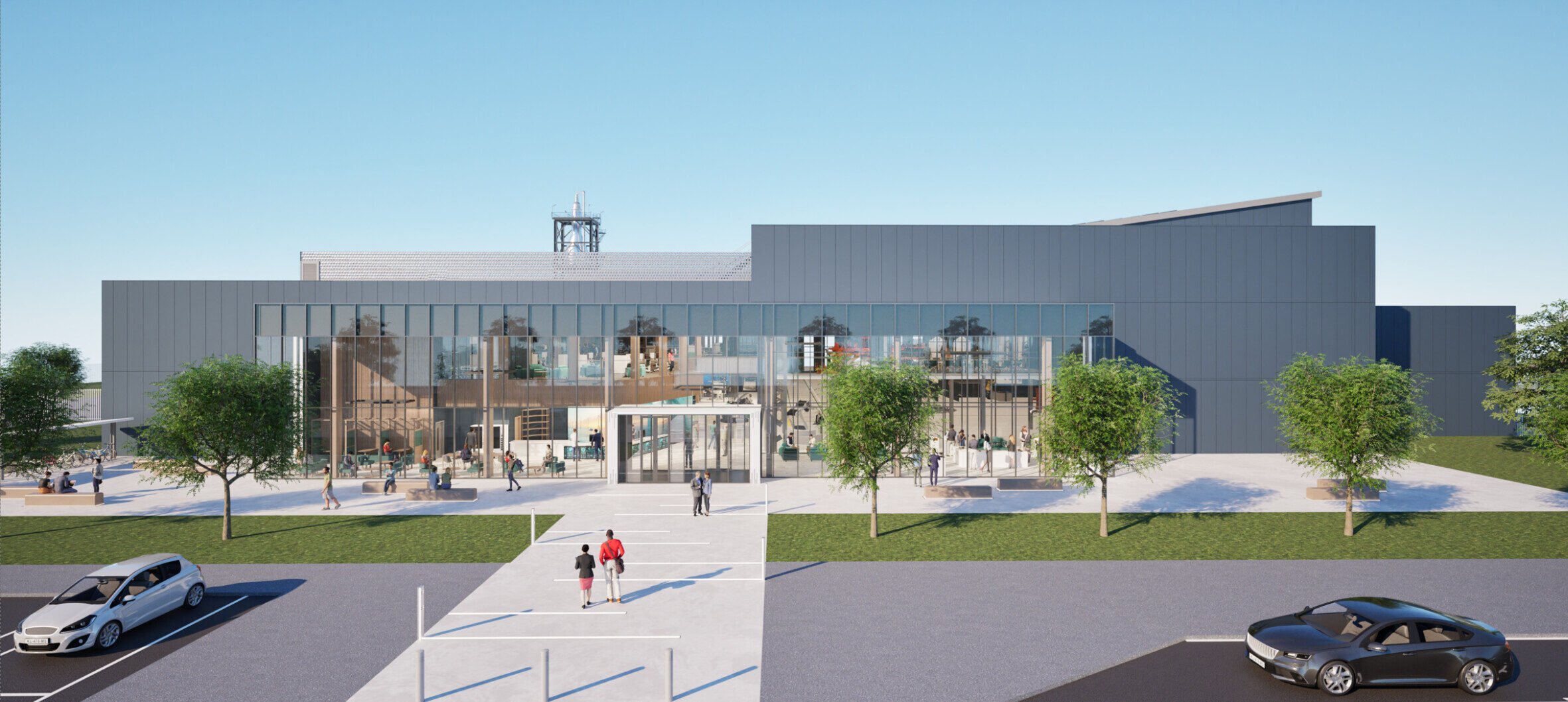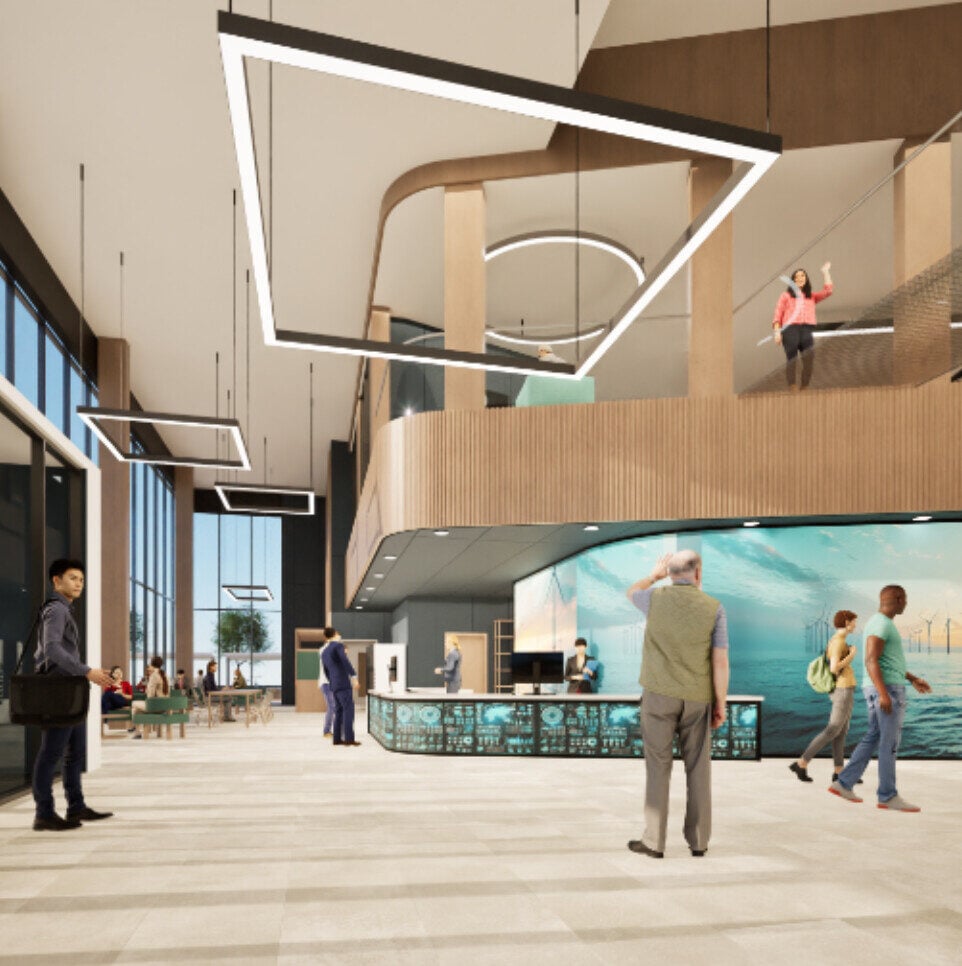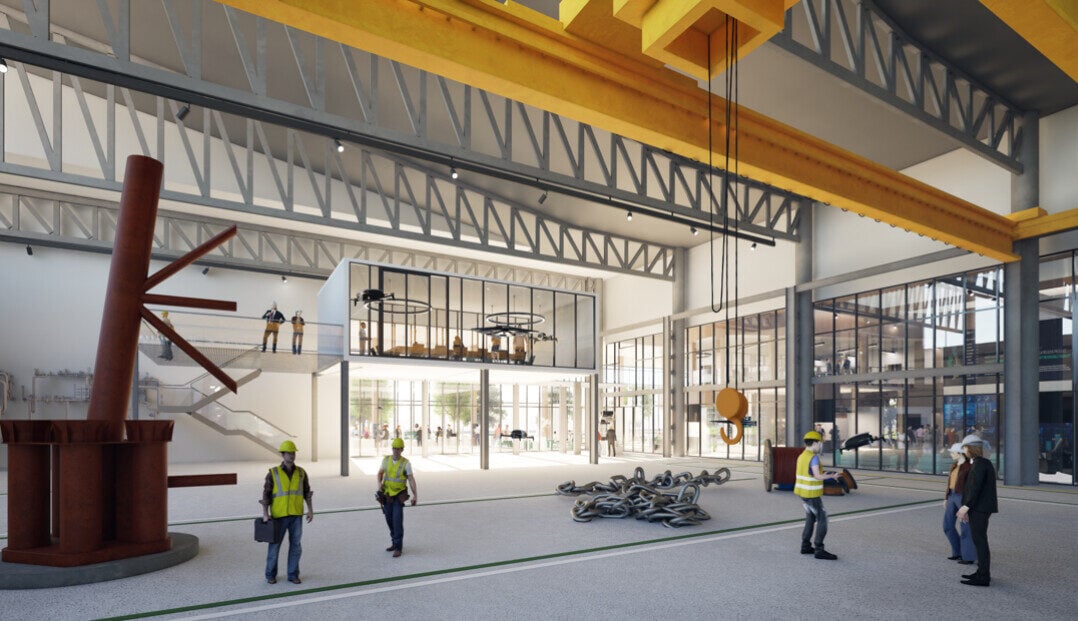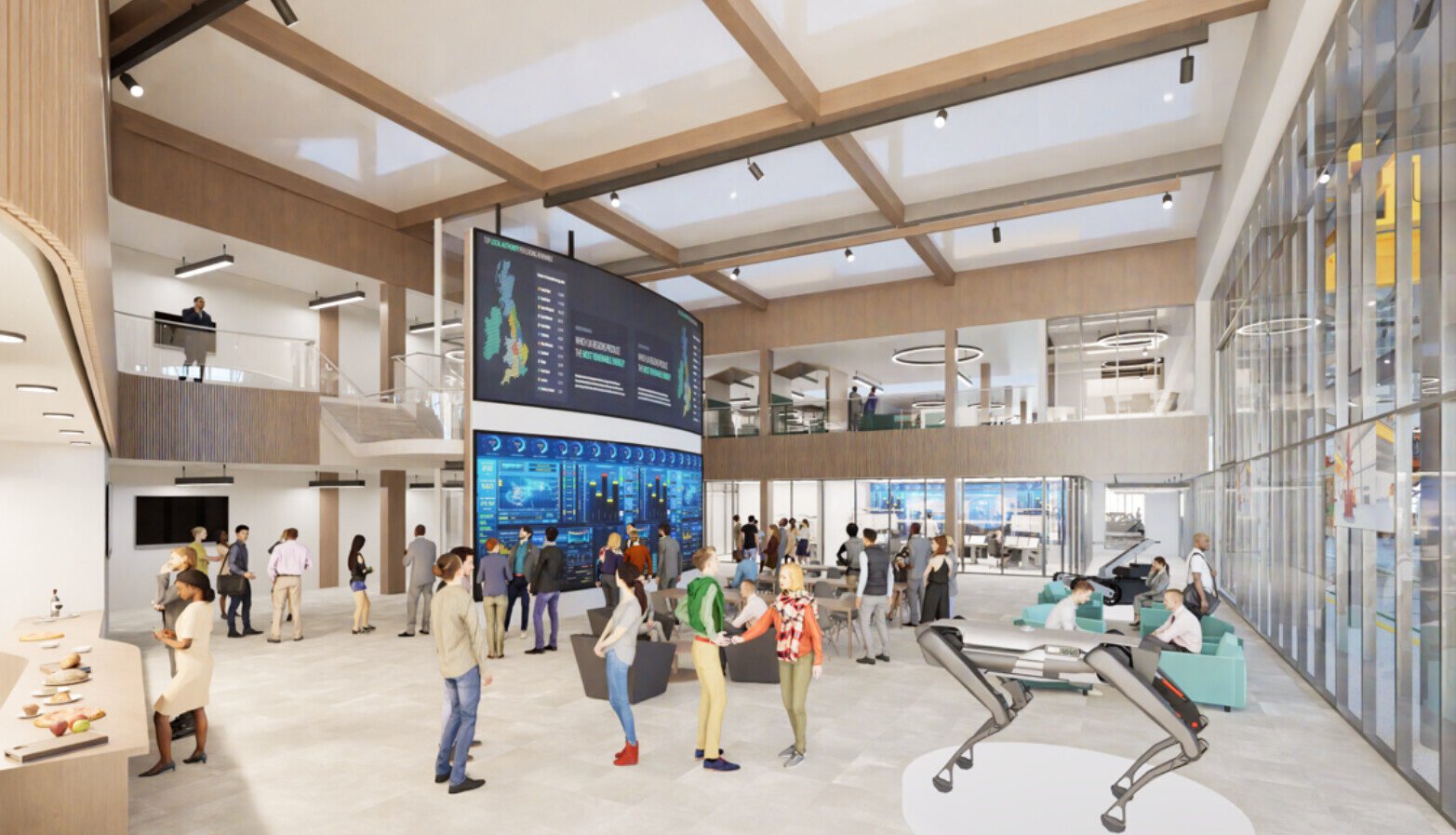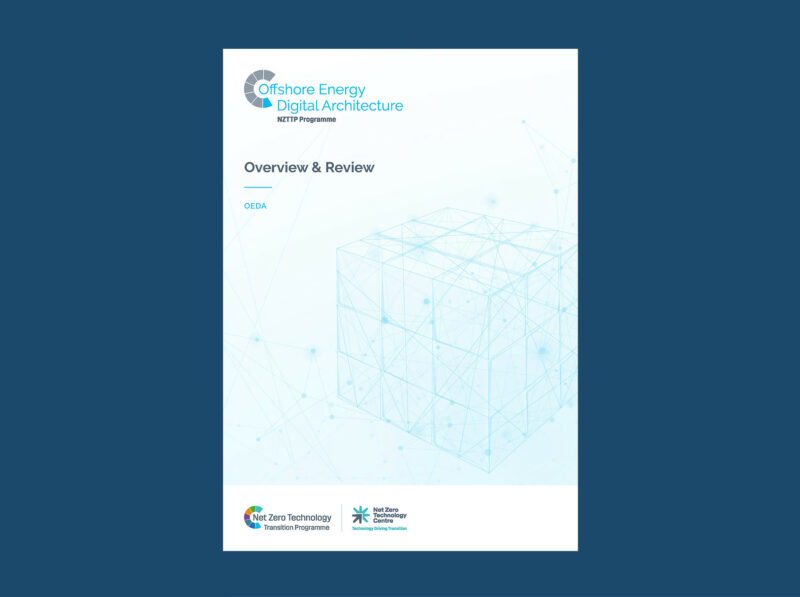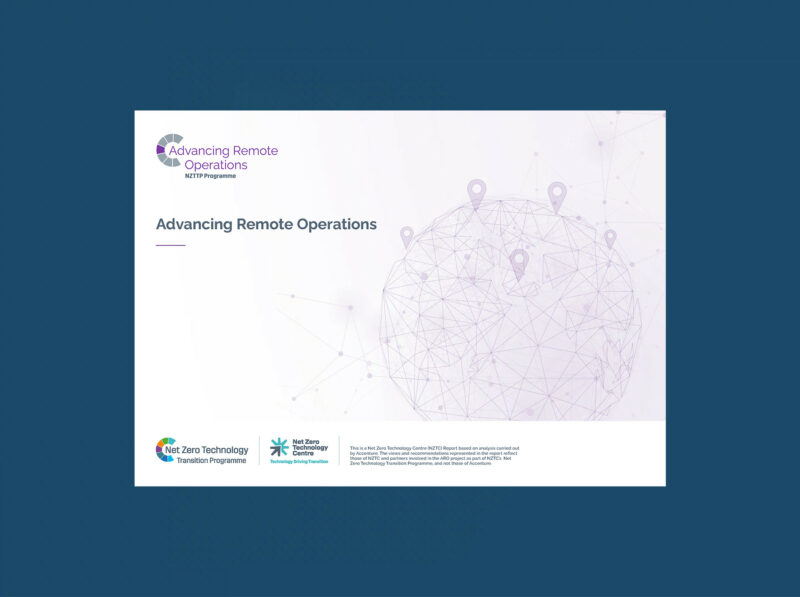The DEN
Welcome to The DEN, a hub where the brightest minds in the energy industry converge with the UK’s most promising digital technologies to accelerate the journey towards net zero.
The UK’s ambitious net zero targets demand rapid digital adoption. Any barrier to digital adoption is a barrier to achieving net zero. A cleaner, smarter, and more sustainable energy system hinges on the integration of AI and data analytics, digital twins, robotics and autonomous systems, simulation and modelling, and remote operations.
The DEN is dedicated to breaking these barriers and unlocking the full potential of the UK’s energy supply chain. Located in Aberdeen, Scotland, this purpose-built facility serves as a Digital Energy Nexus. Here, energy operators, suppliers, stakeholders, and regulators can engage directly with cutting-edge technology and digital resources.
Get early access by filling out this form.
The DEN is driving digital adoption to accelerate net zero
At The DEN, technology is integrated, tested, assured, and experienced in real-world contexts to solve practical problems. The facility provides access to expertise, fosters collaboration, and delivers industry-leading training. This approach builds confidence in new technologies and accelerates their deployment where they are needed most.
The DEN’s Objectives
Drive resilience of digital technologies through physical and virtual testing
Act as central data hub for the industrial energy sector
Demonstrate digital technology benefits and advantages to the wider industry
Advance data and digital modelling capability in context for the energy industry
Facilitate energy sector collaboration and drive cooperation
Provide digital technology expertise
Improve workforce skills base
The DEN is breaking down barriers to digital adoption, including:
Dispersed and inaccessible test facilities
Developers and users need facilities to safely assess technologies, understand failure points, and refine designs. This ensures reliable operation and de-risks commercial adoption.
Data is limited and sharing is challenging
The industry needs large-scale, high-quality data sets on which to create digital testbeds that can be used to de-risk technology development. Best practice and learnings from demonstration and deployment of digital solutions should be regularly shared to allow collective learning.
Business cases are weak, use cases are unclear
The sector needs to develop a bank of use-cases for digital technologies, delivered through collaboration, which are widely accessible, robustly evidenced and demonstrate the potential for broader adoption of digital solutions across the sector.
Lack of knowledge sharing
A centralised, independent organisation can drive this process, playing an intermediary role, establishing the parameters under which knowledge sharing takes place and demonstrating the advantages to all parties of enhanced collaboration.
Skills gap
Extensive training and re-skilling programmes focused on digital and technical engineering skills are essential to prepare employees to manage and operate advanced systems. Programmes to attract a more diverse workforce are needed to ensure access to as broad a talent pool as possible.
Standardisation
A targeted effort is needed to bring together stakeholders from across the energy ecosystem to drive the development of standards and ease the path to regulatory approvals.
Meet the team

Graeme
Booth
Head of Digital Technology
Graeme Booth
Graeme Booth has 30 years of experience in senior positions within aerospace, power, and energy industries, integrating digital solutions with engineering. He has extensive experience across the product lifecycle, applying data analytics, digital simulation and energy system modeling to drive innovation and support decision-making.
As Head of Digital Technology at the Net Zero Technology Centre, Graeme leads the digital strategy and technology roadmap to enable the energy transition. He is currently focussed on establishing a Digital Centre of Excellence focussed on accelerating adoption of digital technology and advises on the wider NZTC digital portfolio. Prior to NZTC he was Chief Engineer for Digital Technology for two multinational organisations (gas turbines and energy).
Graeme holds a BEng in Aeronautical Engineering from Glasgow University, is a Chartered Engineer (CEng) and Member of the Royal Aeronautical Society, is co-chair of the Common Data Toolkit within the NSTA Digital Strategy Group and a member of the Technology Leadership Board Digital Workstream.


Alex
Macdonald
Technology Manager
Alex Macdonald
Alex Macdonald is a strategic digital transformation leader with a track record of project delivery and turning ideas into value through innovative technology development. As Digital Technology Manager at Net Zero Technology Centre, Alex has strong expertise in digital transformation, remote operations, digital worker, and project delivery. He has played a key role in the design and development of all NZTC Digital strategies and roadmaps with ownership of the Smart Asset and Field Automation theme. Alex developed the successfully funded business case for the Advancing Remote Operations (ARO) project, leading it to phase 2.
With a career spanning over two decades, Alex has worked internationally across industries, including offshore and onshore operations, helping people and organisations adopt new digital solutions and improve their operations. Known for a practical and results-driven approach, Alex combines technical knowledge with leadership skills and a personal approach to deliver meaningful outcomes for teams and businesses.
Actively involved in industry leadership programmes, Alex is Better Business Case accredited, a Certified Training Practitioner and holds a BSc in Computing & Information from Robert Gordon University.


Andrew
Bell
Project Manager
Andrew Bell
Andy Bell is an experienced Project Manager with a broad range of technical, operational and commercial expertise across multiple offshore energy disciplines. With a degree in Mechanical Engineering, and over 14 years of experience, Andy has specialised in asset integrity, robotics, digital innovation, alternative fuel and hydrogen projects.

